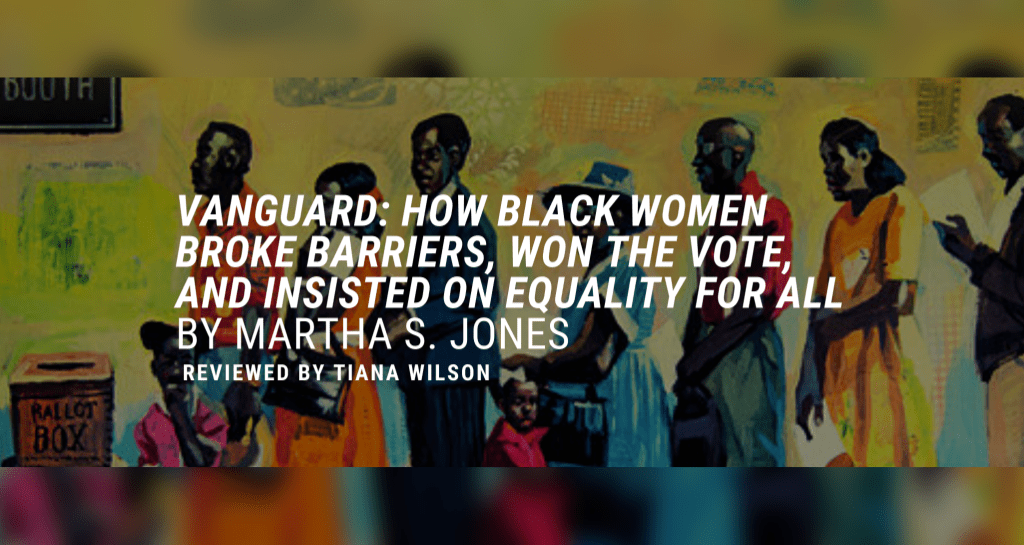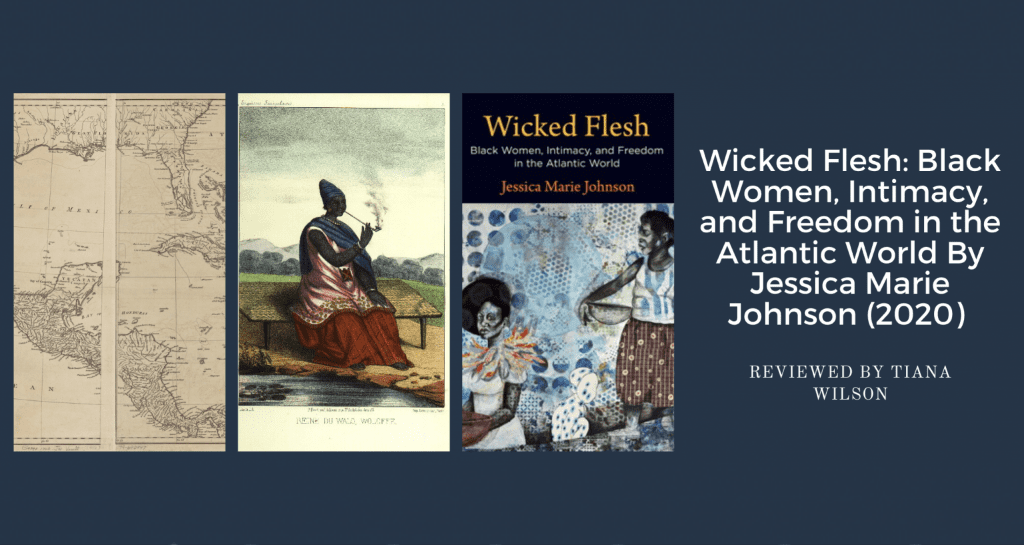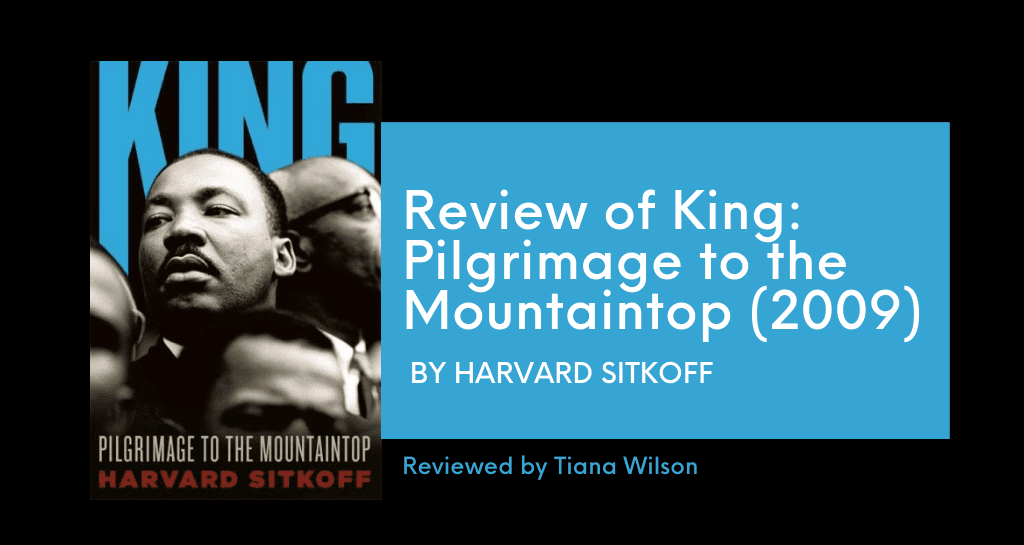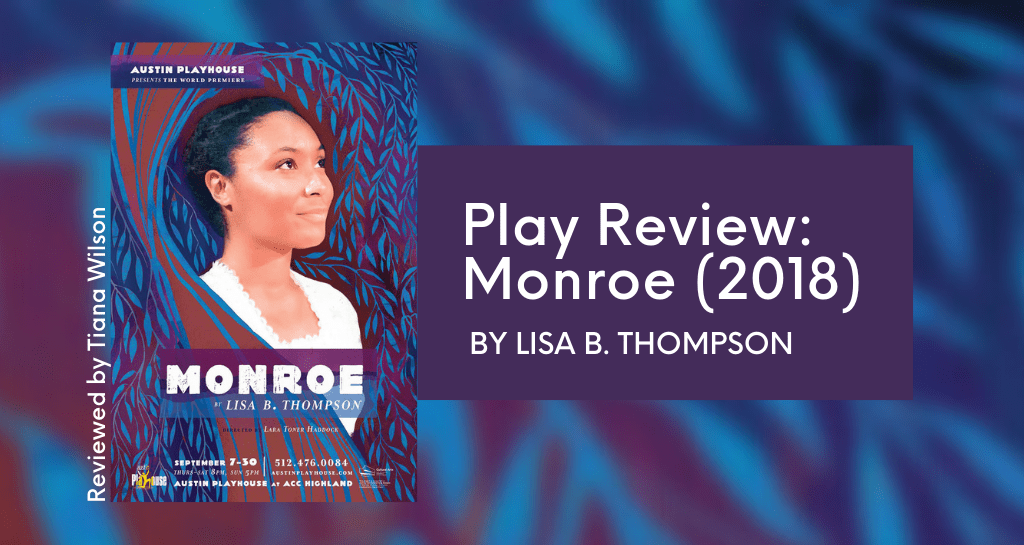The success of Not Even Past is made possible by a remarkable group of writers, both graduate students and faculty. Not Even Past Author Spotlights are designed to celebrate our most prolific authors by bringing all of their published content across the magazine together on a single page. The focus is especially on work published by UT graduate students. In this NEP author’s spotlight, we highlight the numerous contributions to the magazine made by Tiana Wilson.
Tiana Wilson is a doctoral candidate in the Department of History at UT Austin with a portfolio in Women’s and Gender Studies. Her broader research interests include: Black Women’s Internationalism, Black Women’s Intellectual History, Women of Color Organizing, and Third World Feminism. More specifically, her dissertation explores women of color feminist movements in the U.S. from the 1960s to the present. She is writing the first comprehensive study on the Third World Women’s Alliance, tracing their intellectual and organizing legacy in the US and abroad. Centering Black women and other women of color as leading thinkers, Wilson’s dissertation excavates the making of successful multiethnic and multiracial solidarity practices. Her project has been supported by the Sallie Bingham Center, Carrie Chapman Catt Center for Women and Politics, Smith College Libraries, and the Rapoport Center for Human Rights and Justice.
It’s been nearly a year since COVID-19 forced many states to shut down and more than a year since I last stepped into an archive. As a fourth-year PhD candidate at the University of Texas at Austin, I am writing a dissertation on late 20th-century women of color feminist organizations in the United States. My archives include university collections housed at Smith College and Duke University; public repositories located in New York, Alabama, and Washington, DC; and local museums such as the GLBT Historical Society in San Francisco. These diverse research facilities vary in degrees of funding and technical resources, which has made it extremely challenging to access certain materials during the pandemic. Despite this disruption in my research plans, I found ways to make progress on my dissertation. In order for me to stay on schedule and graduate on time, I had to prioritize flexibility, creativity, and collectivity in this new phase of dissertating.
Read the full article here.
As we rapidly approach the 2020 US presidential election, Kamala Harris’ acceptance of the Democratic party’s nomination for Vice President offers great hope to a variety of marginalized communities who have been historically underrepresented in the national political arena. Harris, who identifies as a Black woman, is the daughter of Indian and Jamaican immigrants. Her initial presidential campaign and then her announcement as Vice President led different media outlets to portray her as the first Black woman and first candidate of Indian descent to be named on a major U.S. party’s ticket. Yet, this narrative is not complete and it obscures the great strides made by Black women that paved the way for Harris. Nearly five decades ago, in 1972, Congresswoman Shirley Chisholm became the first Black woman to seek a major party’s nomination for the US presidency. For anyone interested in contextualizing the current political climate, historian Martha S. Jones’ most recent work, Vanguard: How Black Women Broke Barriers, Won the Vote, and Insisted on Equality for All (2020), is a must read. She provides us with a sweeping narrative of how Black women struggled for political power and how this galvanized a broader movement for human rights.
Read the full review here.
Many recent studies on chattel slavery in the Atlantic World have decentered the voices of the colonizers in an effort to creatively reimagine the inner lives of Black people, both enslaved and “free.” However, narrating the complex ways race, gender, and sexuality played out in a colonial setting beyond violence has proven difficult due to the brutal, inhumane conditions of enslavement. At the same time, the drastic imbalance of power raises questions about consent within sexual and intimate relationships. While most scholars of slavery have tended to shy away from such a contentious and messy topic, historian Jessica Marie Johnson presents a compelling analysis of how African women and women of African descent used intimacy and kinship to construct and live out freedom in the eighteenth century.
Read the full review here.
Dispossessed Lives provides a portrait of eighteenth-century urban slavery in Bridgetown, Barbados from the perspective of multiple black women. This includes black women’s experiences in public executions and violent punishments, their involvement in the sex economy, and their efforts to escape slavery. Fuentes makes two interventions into the scholarship on slavery in the Atlantic world. First, she challenges the narrative that plantation slavery was more violent than other forms of bondage, and argues that urban slavery was just as brutal. Second, with a focus on the centrality of gender, Fuentes’ study reveals how black women experienced constructions of their sexuality and gender in relation to white women. The main questions guiding this work were: how did black women negotiate physical and sexual violence, colonial power, and female slaveowners in the eighteenth century, and how was freedom defined and what did freedom look like in a slave society?
Read the full review here.
As we approach the life and legacy of Martin Luther King, Jr. on the 50th anniversary of his death, April 4, 1968, it is crucial to appreciate King entirely. Beyond his push for nonviolent direct action and racial integration, we should recognize his expansive human rights activism, anti-war advocacy, and ground-breaking thinking.
Harvard Sitkoff’s biography of King shows him as a heroic but flawed leader and emphasizes his radicalism rather than his pacifism. Sitkoff does not shy away from King’s shortcomings. He brings attention to King’s adultery and highlights the criticism he faced from others within the movement. His portrait of King shows him to be a man who made mistakes, feared death, belittled women, gambled, partied, and often compromised. However, it was also clear that King was intelligent, strategic, pious, courageous, radical, well spoken, passionate, and loving at heart. Sitkoff argues that King’s view of the civil rights movement shifted. At the beginning of the movement, the goal was to end Jim Crow and obtain voting rights. However, after King’s experience in the urban north, he knew that the civil rights movement needed to expand to include economic and job security as well as housing reform. By the end of King’s life he was a firm advocate of anti-colonialism and opponent of war and he took a global perspective: “Injustice anywhere is a threat to justice everywhere.”
Read the full review here.
On September 15, 2018, I attended Monroe, winner of the Austin Playhouse’s Festival of New Texas Plays, staged at the Austin Playhouse. The playwright, Lisa B. Thompson based the piece on her family’s history prior to their move to California in the 1940s. Situating the narrative in 1946 Monroe, Louisiana, Thompson places the story in broader histories of the Great Migration and southern black people’s experiences in the United States after World War II. Monroe begins with the aftermath of the lynching of a young man that affects his family and friends as they struggle to come to terms with his death. The man’s younger sister, Cherry, confronts her belief that God is telling her to leave the South, while her grandmother, Ma Henry, dismisses the idea. However, Clyde, a friend of Cherry’s brother, takes her dreams seriously and invites her to come along with him to California. Cherry must decide whether she is going to stay in her hometown where she is familiar with the people and cultural traditions or if she is going to risk moving to a location where she does not know what to expect. Overall, Monroe explores how the threat and aftermath of racial violence haunts the lives of African Americans as they imagine different futures.
Read the full review here.










